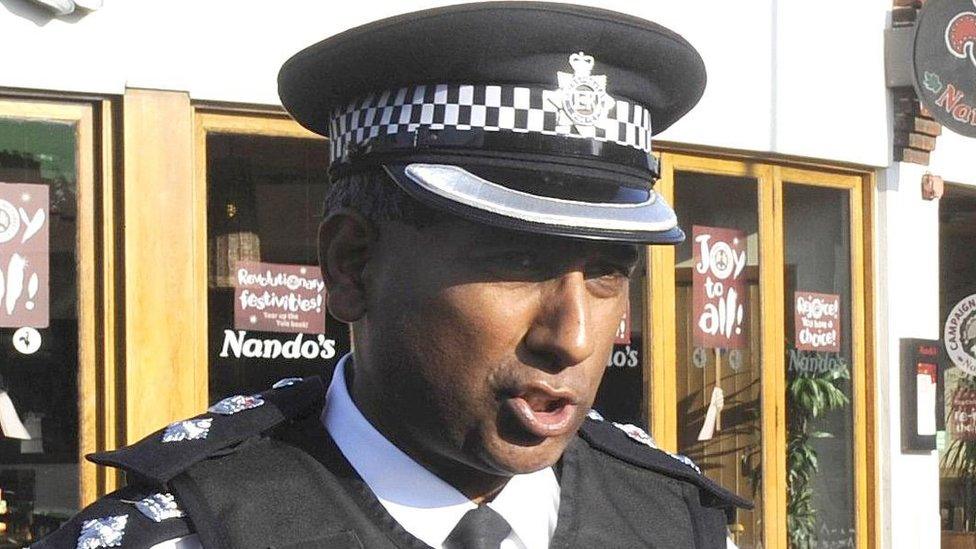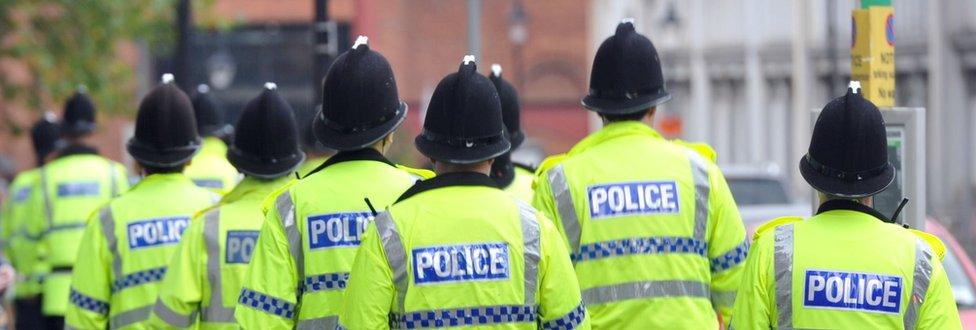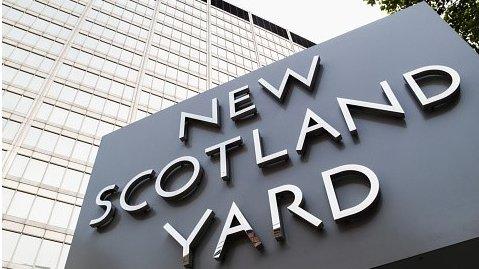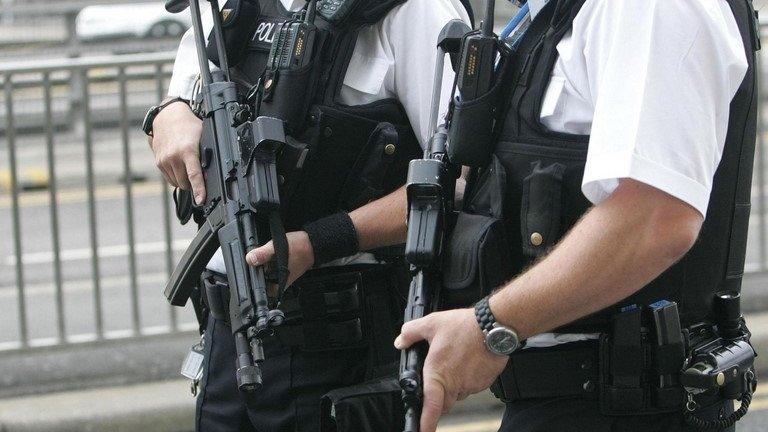Police watchdog IPCC 'favours black complainants'
- Published

The police watchdog is now "more likely to believe black complainants than white police officers", according to a former officer and equality campaigner.
Dal Babu, ex-president of the National Black Police Association, said the Independent Police Complaints Commission had "flipped" too far and did not look into racism claims fairly.
He spoke days after a misconduct case of three officers accused of racism against a black firefighter collapsed.
The IPCC has rejected Mr Babu's claims.
Mr Babu, a former Metropolitan Police chief superintendent who retired three years ago, told BBC Radio 4's Broadcasting House programme the IPCC had been "incredibly unfair against white officers".
He said racism was rife in the police when he joined in the 1980s, but he was now worried the IPCC had "flipped and is more likely to believe black complainants than white police officers".
Mr Babu said he had a "long history of fighting for equality in the police service" and wanted officers to be held to account, but said it must be done fairly.
Collapse of firefighter dispute
His comments come amid criticism of the IPCC for its handling of a complaint by firefighter Edric Kennedy-Macfoy, who accused police officers of racism after an incident in Harrow, north London, in 2011.
It was a month after widespread riots, and Mr Kennedy-Macfoy, who was off duty, said he had offered to help police who were dealing with a disturbance involving about 200 people.
What happened next is disputed, but Mr Kennedy-Macfoy was tasered and arrested, then charged with obstructing police and resisting arrest.
After being cleared by magistrates in 2012, he began a civil case against the Metropolitan Police - and this was settled last year when the force apologised and paid him compensation.
An internal Met Police investigation had concluded that no officer should be disciplined over the incident, but in 2013 the IPCC rejected this and started its own inquiry.
Three officers faced a misconduct hearing last week, but the case the collapsed when the IPCC offered no evidence.
Mr Kennedy-Macfoy's lawyer Shamik Dutta said it was "peculiar for anyone to speculate that the IPCC was 'more likely to believe' Edric because he is black".
"One would expect a police complaint made by any firefighter in Edric's position to have been treated extremely seriously," he said.
He added that Mr Kennedy-Macfoy still works with the police in his role as a crew manger for the London Fire Brigade and the Met had invited him to help train their officers.

Analysis

by Danny Shaw, BBC home affairs correspondent
It's no surprise the police officers involved in the case, and their representatives, are angry at the IPCC's handling of it: after all, their careers hung in the balance for almost five years.
Edric Kennedy-Macfoy feels let down by the watchdog as well, even though the Met apologised and paid him compensation.
What's of particular significance, though, are the comments of Dal Babu.
When he retired, he was one of Britain's most senior Asian police officers.
He's fought against prejudice all his life, championing the recruitment and promotion of ethnic minorities in the service.
So his accusation that the IPCC is too ready to believe complaints of racism must be taken seriously.
No one doubts the IPCC has a difficult job - but it seems they have some way to go to restore confidence in the way they handle such complaints.

What does the IPCC say?
Ken Marsh, chairman of the Metropolitan Police Federation, said the relationship between officers and the IPCC was "broken", and he called for a review by MPs.
"This has been going on for too long now, we've had too many promises made and too many fudged investigations where my colleagues... are being treated as if they are just common criminals," he said.
The IPCC admitted "procedural shortfalls" in its investigation of Mr Kennedy-Macfoy's complaint, and apologised both to him and the officers involved.
IPCC deputy chair Sarah Green told the BBC there would be a review to find out "what went wrong and why", but she said she "wouldn't want to get things out of proportion" based on one case.
She rejected claims that the IPCC is prejudiced against white officers when a black person complains.
"That is not our starting point. We always start from looking at everything to determine, as far as we are able, what we think happened," she said.
- Published27 July 2016

- Published9 March 2015
